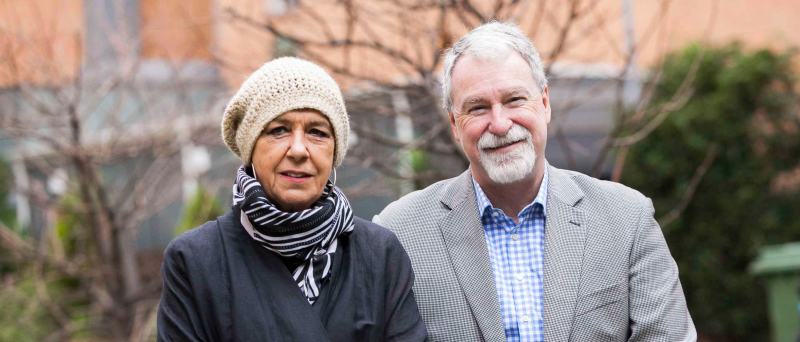Reconciliation Action Plan (RAP)
Alfred Health’s vision for reconciliation is one where all aspects of our health service are accessible, culturally safe and equitable. It represents equal health outcomes for Aboriginal and Torres Strait Islander patients and an inclusive and diverse workplace that champions cultural safety.

We have developed the second Alfred Health Reconciliation Action Plan (RAP) that aligns with our Alfred Health 2024-30 Strategic Plan.
We appreciate that as a health service and as individuals, we need to embark on an educational journey towards greater understanding and acknowledgement of our shared history, Aboriginal culture, and local community. This education and connection will lay the foundations for building respectful, trusting and mutually beneficial relationships.
Aboriginal Elders are guiding us through our reconciliation journey. Watch the videos below to hear more about recent partnerships that have led to the development of culturally inclusive and respectful areas for everyone to feel welcome at our facilities.
Pictured: Traditional Elder Dr N'arweet Carolyn Briggs AM and Professor Andrew Way AM, former Alfred Health Chief Executive.
Hear from staff about the Indigenous Garden at the Alfred and how it creates a culturally safe place for patients and staff.
Hear from staff and community as they share how a partnership approach is bringing culturally safe, specialist diabetes care into Aboriginal community settings where it’s needed most.
Alfred Health Innovate RAP 2023-2025
Our first Reconciliation Action Plan was an opportunity to examine our services and start to create initiatives that improve access and the equitable care of patients into the future.
This Innovate RAP allows us to continue working towards our vision for reconciliation. One that strives to achieve equal health outcomes for Aboriginal and Torres Strait Islander patients and an inclusive and diverse workplace that champions cultural safety.
Want to find out more?
A Reconciliation Action Plan (RAP) is a framework for organisations to develop a business plan that documents what it commits to do to contribute to reconciliation in Australia.
A RAP will enable Alfred Health to implement practical actions that build respectful relationships and create opportunities for Aboriginal and Torres Strait Islander peoples.
Alfred Health has developed an 'Innovate' RAP which focuses on:
- Relationships
- RAP Awareness
- Supporting staff
- Cultural safety
- Celebrating aboriginal events
- Employment and education
- Better health and wellbeing
A RAP gives Alfred Health the opportunity to achieve broader outcomes such as:
- A culturally safe and inclusive environment for staff and patients
- Improved health service delivery to Aboriginal and Torres Strait Islander Peoples and communities
- A more diverse, inclusive and dynamic workforce that reflects the community that we serve
- Aim to become an employer of choice for Aboriginal and Torres Strait Islander People
Our RAP is part of a national commitment to improve Aboriginal health and wellbeing. We contribute to the evaluation of this national framework.
The process of developing a RAP brings together a range of managers, staff and Aboriginal community representatives, including Aboriginal employees and local Aboriginal Elders. This builds relationships both within Alfred Health and the broader community. Stakeholders meet regularly to support the development and implementation of RAP actions.